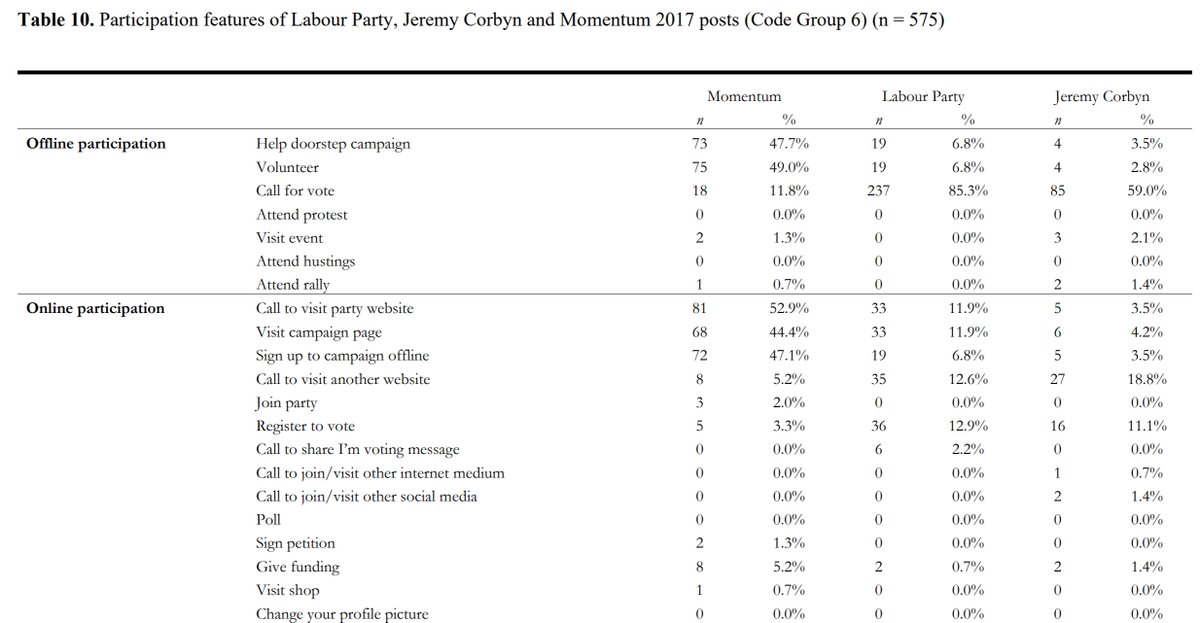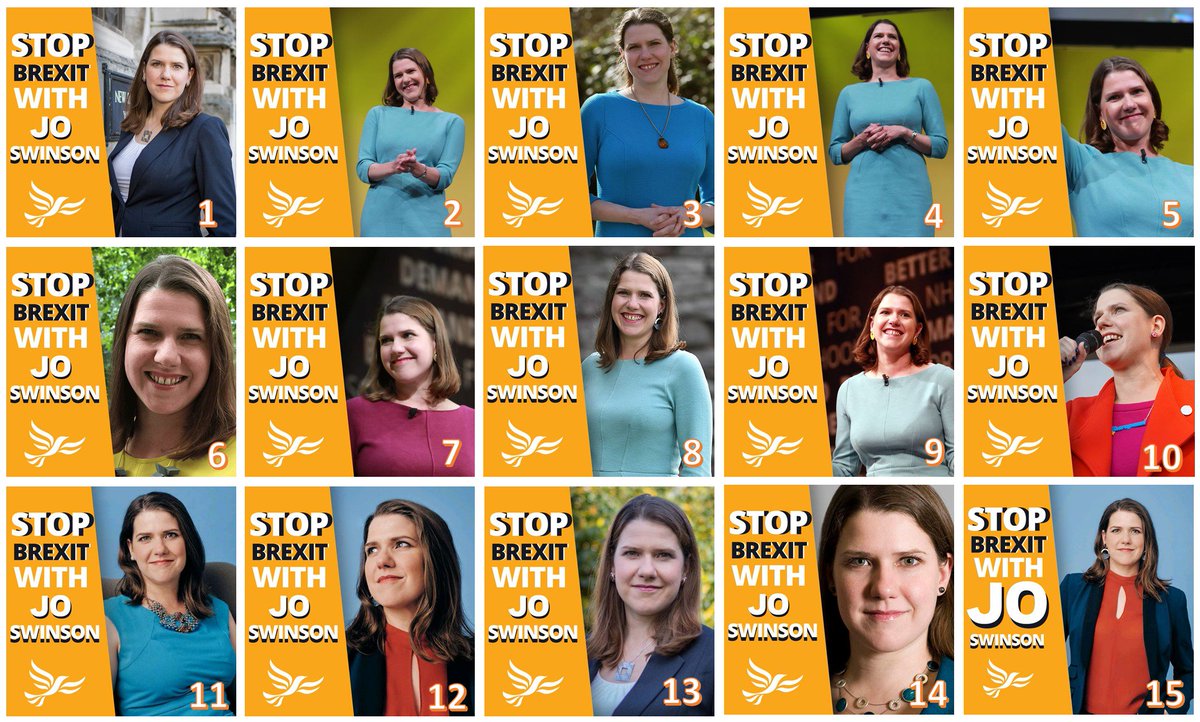
🚨🚨 New working paper 🚨🚨
I examine what @PeoplesMomentum actually did for the @UKLabour during the 2017 Election #Facebook campaign - I develop further the concept of 'satellite campaigning' and originate the idea of 'Janus-faced campaigns' #arxiv 1/
osf.io/preprints/soca…
I examine what @PeoplesMomentum actually did for the @UKLabour during the 2017 Election #Facebook campaign - I develop further the concept of 'satellite campaigning' and originate the idea of 'Janus-faced campaigns' #arxiv 1/
osf.io/preprints/soca…
I find the #2017GE fascinating because it disrupts the targeted ads are everything narrative. Something was in the water and it was visible via Facebook. Since Facebook's audience has changed, but I still feel the case highlights the vitality of organic campaigns/satellites 2/ 

#Methods: Quantitative content analysis of the organic posts sent by the pages one month before election day (excluding election day). I used over 800 variables, only some are in the paper. Others will be used later on. 3/
So what is Janus-faced campaigning? #Janusfacedcampaigning on Facebook gave the party the best of both worlds during the 2017 General Election. 4/ 

From satellite #Momentum (via what I call 'new methods') the party was using novel content and participation forms to activate followers including pushing volunteering and just-turn-up style doorstep efforts. This fulfils some 'cyber party' ideals that break down party/public. 5/ 

Momentum was placing a large amount of effort into activating their audience online and offline, this is in stark contrast the the Labour Party page that focused on broad brush stroke information, with any participation content seen focused on registering to vote/voting. 6/ 

Via the party page (and somewhat Corbyn's page) Labour was recreating tried and tested approaches seen via traditional campaigning. Content was infographic heavy, with this traditional Facebook campaign focused on depersonalised info & policy, using Facebook like leaflets. 7/ 

However, rather than your local Labour pavement campaign group these infographics would be shared by your mum. This was all the while Momentum was going exceedingly viral while Corbyn smashed viewing records for Labour's Live events all livestreamed on Facebook. 

Corbyn's page acted more akin to a middle man, utilising less policy focus, instead operating as a passionate vehicle for partisanship/personalisation. This was about getting the public activated, for example registering to vote, spreading messages and undermining @theresa_may 9/ 

Anyway, I will be working on it further to submit to a journal, but I am going to be busy soon so want the knowledge out there asap (thus preprint).
I also coded the Tories leader and party pages 2015/17, Labour leader and party page 2015 + Momentum in 2018 so more to come. END/
I also coded the Tories leader and party pages 2015/17, Labour leader and party page 2015 + Momentum in 2018 so more to come. END/
@threadreaderapp please unroll
• • •
Missing some Tweet in this thread? You can try to
force a refresh






